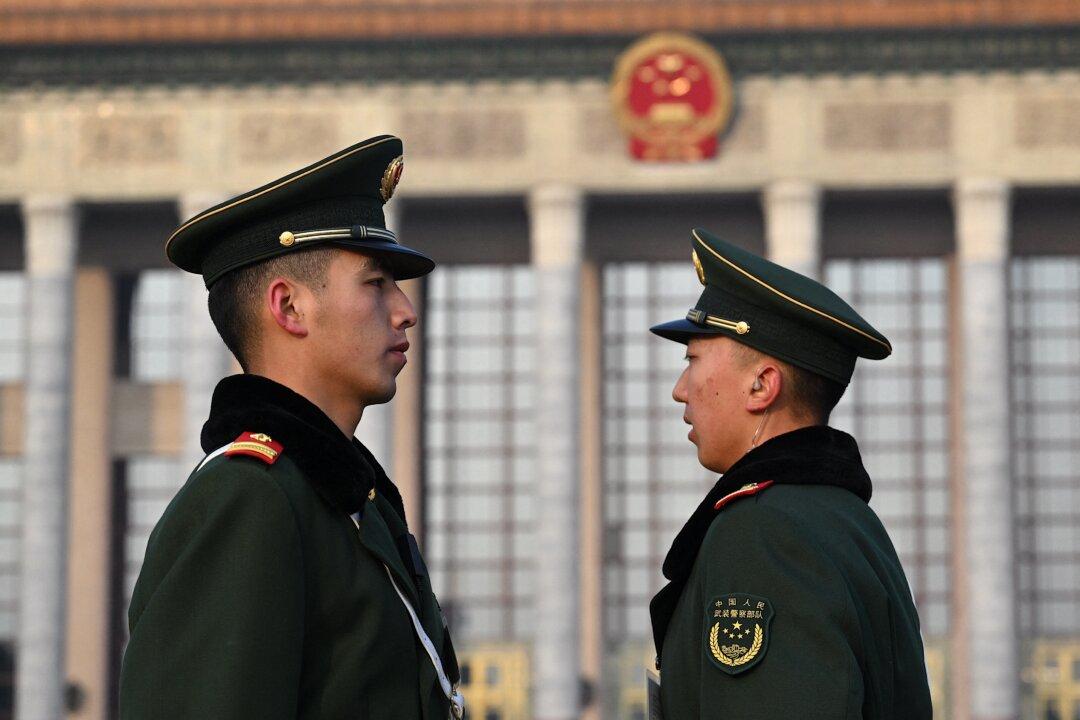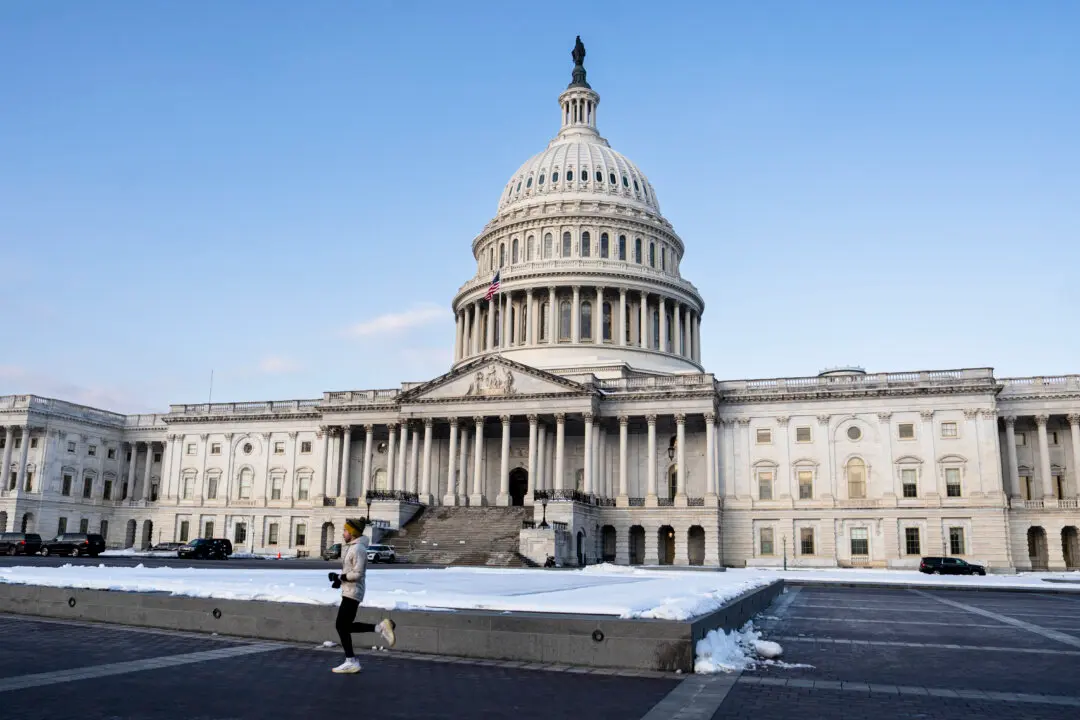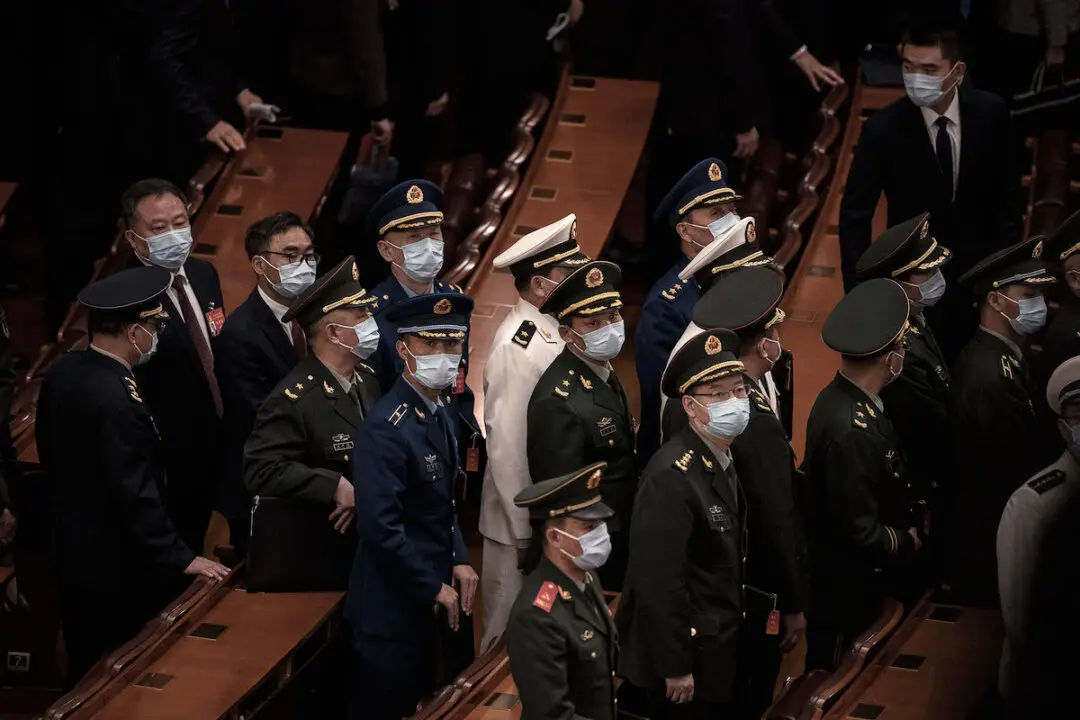The Chinese regime has stepped up security and imposed sweeping restrictions ahead of a massive military parade on Sept. 3 to mark what the Chinese Communist Party (CCP) calls the 80th anniversary of the “War of Resistance Against Japan.” The event in Tiananmen Square is expected to feature thousands of troops, military hardware, and dignitaries, with large-scale rehearsals continuing through August.
Daily Life Disrupted
For many Beijingers, the buildup has meant weeks of disruption.“You can’t go in or out freely,” Mr. Wang, a local resident who withheld his full name for fear of reprisal, told The Epoch Times. “The subway skips stops near Tiananmen, and this has been going on for days.”
Petitioners Face Suppression
The clampdown has hit petitioners especially hard. Petitioners are Chinese people who travel to Beijing or other major cities to file grievances with the regime’s authorities. While petitioning is nominally a legal channel for complaints under the CCP’s authoritarian rule, petitioners are often harassed, detained, or forcibly returned home.On Aug. 10, Chongqing petitioner Lu Junling said on Chinese social media platform WeChat that she and fellow petitioner Zhang Yanyu were pulled from a long-distance bus at a highway rest stop by two men in black claiming to be police, along with a local official. Accused of “disturbing public order,” Lu said she was injured during the encounter and called it “an unlawful interception and restriction of my personal freedom.”
Even petitioners not heading to Beijing have been targeted. That same morning, another Chongqing resident, Xu Tingfen, said police came to her home shortly after she mentioned in a group chat that she planned to travel to Sichuan Province. Xu, who has been pursuing a property dispute for more than 20 years, said officials “are afraid of us moving around, but they won’t solve our problems.”
In Guangdong Province, petitioner Chen Guifang reported that local police visited her home after officials from her hometown contacted them, apparently fearing she would travel to the capital.
“The corrupt officials are afraid that I will bring my grievances to the capital,” Chen said.

Detentions Turn Violent
In some cases, detentions in Beijing have escalated to violence. On Aug. 9 in the city’s Fengtai District, eight police officers detained disabled Chinese veteran and former police officer Liu Jie and his wife, Fu Haixia, on a public sidewalk.Liu was released that evening and recounted his experience on social media, but Fu was taken to a police station on suspicion of “infringing personal information.” Her family says she has been held without a detention notice for more than 24 hours. Liu has filed an urgent request with prosecutors, accusing police of illegal detention and demanding her release.
Political Theater at the Public’s Expense
Security experts say such measures are common in China ahead of politically sensitive events. Mr. Long, a Beijing-based media professional who withheld his full name, told The Epoch Times that the parade preparations follow a familiar pattern seen during the annual “Two Sessions” meetings of the CCP’s rubber-stamp legislature, when streets are cleared and movement is tightly controlled.“Every year during the ‘Two Sessions,’ they clear the streets, put more guards on buses and subways, and make it very inconvenient to get around,” he said.
The upcoming parade, according to Mr. Long, is “political theater” that consumes public resources while offering no tangible benefits to ordinary citizens.
“The streets are full of armed police, auxiliary officers, and barricades. Around Tiananmen Square, there are fences everywhere. Even in front of universities like Tsinghua and Peking, it feels like you’re walking into a security compound,” he said.

Nationalism and Control
The CCP has framed the Sept. 3 parade as a patriotic celebration of China’s role in the 1937–1945 World War II campaign against Japan, portraying it as a pivotal moment in the Party’s rise.However, the reality was that the Nationalist government, not the CCP, led most of the fighting during that era. In recent years, the Party has invested heavily in commemorations that blend nationalism with military displays.
For Beijing residents and petitioners nationwide, the lead-up to the event has meant disruption, uncertainty, and in some cases, the loss of personal freedom. With more rehearsals planned and security measures expected to remain in place until after the parade, many say that the city’s festive facade conceals an atmosphere of tension and control.






